Algonquin College Wine Tasting Lab
There’s been lots of debate lately over the definition of a sommelier: Is it someone who has taken a few courses? Graduated from a recognized program? Works full-time in a restaurant?
It’s a great discussion, and one that was prompted recently by a National Post article on wine critics and their expertise in tasting wine.
The Algonquin College Sommelier Program in Ottawa has played an important role in training many sommeliers, however you may define that role. The Program is the first, and still the only, sommelier program in the province sanctioned by the Ministry of Education of Ontario. The Program began in 1992 and has been the recipient of both the LERN International Award and the CONNY Award.
The LERN International Award recognizes “Excellence in Programming.” Learning Resources Network (LERN) has more than 4,000 members in 16 countries and is connected with almost every major Community College in both Canada and the United States.
 The CONNY is awarded to a unique Continuing Education program that is creative, innovative and exemplary. It’s hotly contested and open to thousands of Continuing Education programs (not just wine programs) in all Ontario Colleges. The CONNY award reflects the rigor of the program’s standards and the excellence of classroom instruction provided by faculty. The award also recognized cooperative partnerships forged with numerous Canadian VQA wineries.
The CONNY is awarded to a unique Continuing Education program that is creative, innovative and exemplary. It’s hotly contested and open to thousands of Continuing Education programs (not just wine programs) in all Ontario Colleges. The CONNY award reflects the rigor of the program’s standards and the excellence of classroom instruction provided by faculty. The award also recognized cooperative partnerships forged with numerous Canadian VQA wineries.
Many instructors in the Algonquin College Sommelier Program are graduates of the program and almost all have full-time involvement in the wine, food and spirits world such as David Loan, owner of Zen Kitchen Restaurant; Liam Doody, national capital manager for Diamond Estates Wines and Spirits Agency; Randy Fitzpatrick, owner of Petit Bill’s restaurant; Aaron Shaw, former winemaker in Cahors, France and the Barossa, Australia, now representing Vintage Trade Wine Agency; Steve Robinson, sommelier at Atelier Restaurant; and Don Cook, former Canadian Manager for Clos du Val and Kendall Jackson. Regular course evaluation feedback consistently points to their passion, caring and competence.
The program is comprehensive, with 10 levels including a field placement consisting of 30 hours to gain a practical, real-world experience as a sommelier. Courses include: Wine Tasting, Grape Varieties, Vinification, Old World Wines, New World Wines, Wine and Food Pairing, Beers of the World, Whiskies of the World, Sommelier Advanced and Field Placement.
Upon successful completion of all 10 courses, including the field placement and restaurant service exam judged by restaurateurs and sommeliers, graduates are awarded the Algonquin Sommelier Program Certificate. Those who don’t become sommeliers working in a restaurant often refer to themselves as an accredited or certified sommelier to indicate that they have accreditation, having passed all of the credit-required courses, but are not employed as sommeliers.
Here are just some of the well-known graduates of the program.
I started with an entry level wine course at the George Brown College in Toronto. However, when I moved to Ottawa, I continued, and completed, the Algonquin Sommelier Program.
I’ve also worked as a sommelier in several restaurants, including a 5-diamond establishment, as part of extensive research for a series of in-depth magazine pieces, as well as for my books. However, when asked, I refer to myself as an accredited sommelier to indicate that I don’t work as one, but have taken the required courses and graduated from the program.
The Algonquin Sommelier Program is to wine what the Masters in Business Administration at the University of Western Ontario is to business: respected, foundational, methodically structured and comprehensive. Having graduated from both programs, I can say that they are a confidence springboard to a life-long journey of loving and learning more about wine, business and human nature.
One program can never deliver everything you need to know about a particular field. What it can do, though, is fire your passion to continue the exploration. The Algonquin Sommelier Program does just that.
Sommelier Program Courses
1 HOS5162 WINE TASTING
Evaluating wines, making sound purchasing decisions and recommendations are key skills of wine professionals. Appreciating the complexities of wine, students build confidence in their tasting abilities. By applying professional techniques, students gain proficiency in perceiving various aromas and flavours. The identification of common faults in wine is also revealed. Heightening senses and acquiring descriptor profiles for aromas and flavours enable students to express assessments in a more organized and objective manner.
2 HOS5027 GRAPE VARIETIES
The characteristics of the world’s most popular grape varieties used in wine making are explored. Students refine sensory skills while expanding their understanding of wines. Students distinguish these classic grapes, develop an appreciation for each variety’s characteristics and subtleties and examine how wine makers harness these subtleties to create a wine style identity exclusive to their region. They also explore sustainable vineyard management practices and are able to recognize environmentally safe methods of controlling pests and weeds. Pre-requisite: HOS5162
Today’s wine makers use a variety of techniques to create their finished products. Students come to appreciate the science of oenology through a detailed examination of the winemaking process and by tasting a variety of wines produced by different techniques. Pre-requisites: HOS5162, HOS5127
4 HOS5163 OLD WORLD WINES
The standards for grape growing and wine production now practiced around the world were established in a few select geographical locations. Students explore the geographical, historical and cultural factors that have influenced the old world wine industries of France, Italy, Germany, Spain, Portugal and central Europe. By tasting premium old world wines, students appreciate the impact of old world wine making techniques on today’s wine market. Pre-requisites: HOS5162, HOS5127, HOS5148
Old world wine regions have influenced new world regions and have, in turn, been influenced by them. Students explore the geographical, historical and cultural factors impacting wine production in Canada, the United States, South Africa, Australia, New Zealand, and South America. As students taste premium new world wines, they examine the production techniques and styles introduced by these young regions and expand their knowledge of new world wine regions. Pre-requisites: HOS5162, HOS5127, HOS5148, HOS5163
6 HOS5158 WINE AND FOOD PAIRING
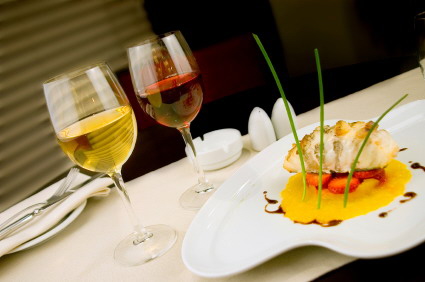
Students unravel the mystery and eliminate the misconceptions surrounding the art and science of successfully pairing wine with food. “Hands-on” experiences challenge the senses and perceptions. Students experience fine cuisine and well-chosen wines along with a themed tutorial.
Beer is an important component of the beverage industry. Students learn about the ingredients used to produce this historical beverage, as well as how it is made domestically and internationally. Additional topics covered include the classification of beer, how to properly taste and assess beer, how to match beer with food, and how to cook with beer. Special attention is placed on local micro-breweries.
8 HOS5169 WHISKIES OF THE WORLD

Whiskey is known to aficionados as the ‘water of life’. Students sample the major varieties including Scotch whisky (Single Malt and Blended), Irish whiskey, American Bourbon, Tennessee whiskey, Canadian Rye whisky as well as other international brands. Single Malt Scotch whiskey is given particular attention. The history, key producers and unique distillation practices for each area are presented. By savouring exclusive aged whiskies, students come to recognize a wide range of flavours and aromas.
Students use the skills gained through previous courses in this capstone course in which they experience the practical duties of a Sommelier. These duties include properly controlling a wine and spirits cellar, developing a sophisticated wine list, and suggesting complementary food and beverage combinations to customers. Pre-requisites: HOS5162, HOS5027, HOS5148, HOS5163, HOS5164, HOS5158, HOS5165, HOS5169
Students are required to complete a placement over a four month period to ensure the fulfilment of program requirements. This work placement is designed to further develop and enhance students’ social responsibility skills as outlined in the Smart Serve program. Students also apply a sound financial approach when purchasing and listing wines. The goal is to provide students an opportunity to gain practical, real world experience as a Sommelier. Students are encouraged to find their own placement location which would best reflect their future industry plans. Students who are unable to locate a placement will have one assigned to them. Pre-requisites: HOS5162, HOS5027, HOS5148, HOS5163, HOS5164, HOS5158, HOS5165, HOS5169
Algonquin College Sommelier Program
385 Woodroffe Avenue
Ottawa, Ontario K2G 1V8
613-727-0002




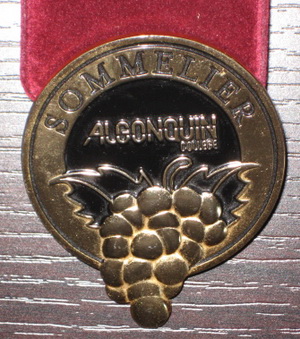
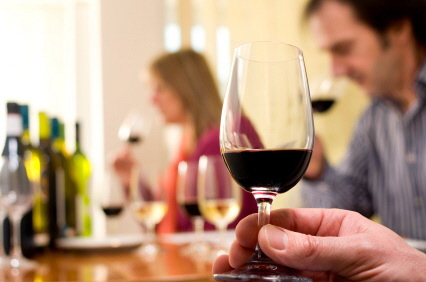
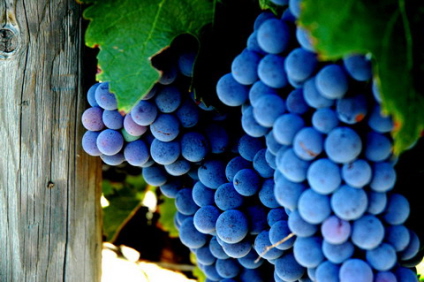
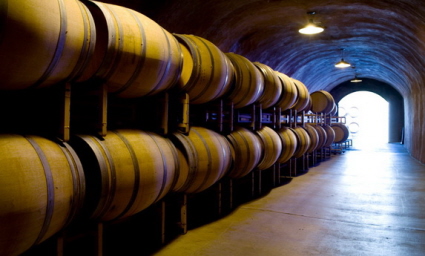
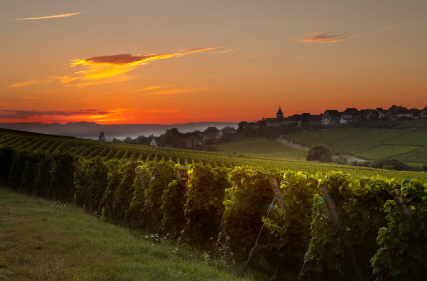
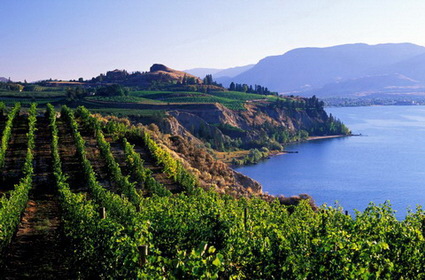
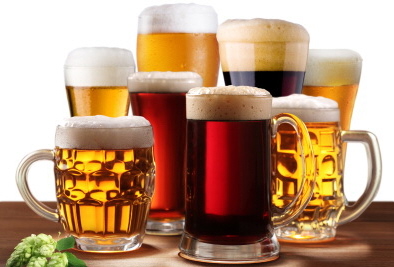
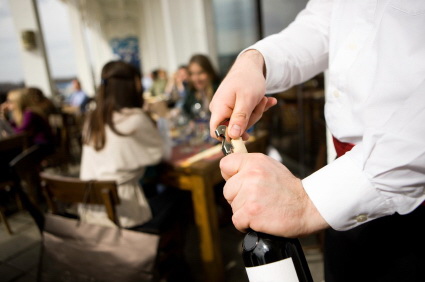
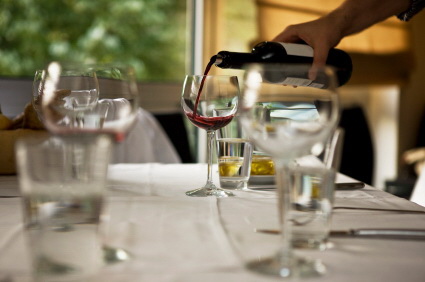







Bravo!
Bravo!
Thanks Jane!